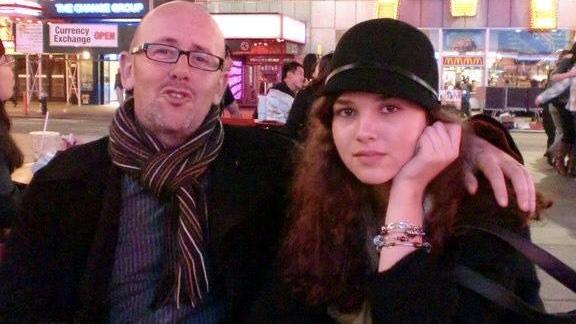Countrygirl
Senior Member
- Messages
- 5,476
- Location
- UK
Sean O'Neill, health journalist for The Times, describes the death of his 27-year-old daughter from severe ME after the Royal Devon and Exeter Hospital, notorious for their unkind and unprofessional treatment of ME patients, refused to fit an NG tube, despite the CEO being warned by an ME specialist and consultant via email that she would die if she wasn't treated appropriately. The CEO never responded and Maeve died three weeks later.
https://www.thetimes.co.uk/article/...RotX0O-0yuFLJiRPLUVXkLUX70f6o1ssjFKyy21zbsIgQ
My daughter couldn’t be saved but there’s hope for other ME patients
Sean O’Neill
Friday May 13 2022, 12.00pm, The Times
Health

Sean O’Neill and his daughter Maeve on their trip to New York in 2010
https://www.thetimes.co.uk/article/...RotX0O-0yuFLJiRPLUVXkLUX70f6o1ssjFKyy21zbsIgQ
My daughter couldn’t be saved but there’s hope for other ME patients
Sean O’Neill
Friday May 13 2022, 12.00pm, The Times
Health

Sean O’Neill and his daughter Maeve on their trip to New York in 2010
The announcement of an action plan for tackling myalgic encephalomyelitis is a genuine breakthrough. Sajid Javid and his team have set Britain on the path to become the world leader in confronting this cruel, misunderstood and neglected disease.
For me it is the most bitter of bittersweet moments.
In the early hours of October 3 last year, my eldest daughter, Maeve, died aged 27 from ME.
This intelligent, creative, courageous young woman lived half her life with a truly awful disease. Bit by bit, ME stole away her youth, her promise and her independence.
She struggled not just with the debilitating, disabling effects of ME but also with the disbelief, apathy and stigma of the medical profession, the NHS and wider society.
Maeve endured three gruelling admissions last year at the Royal Devon and Exeter Hospital and there are many, many questions about how that institution approached her illness.
There are questions about the attitude towards someone diagnosed with ME, about the treatment offered and those that were denied. Mostly I question whether, if she had arrived at that hospital with the same acute symptoms but a diagnosis other than ME, the medical staff would have treated her differently.
I hope at least some of my questions will be answered by an inquest into Maeve’s death to be held later this summer.
I believe Maeve (like many people with this illness) suffered discrimination because there is a deeply embedded prejudice about the disease which permeates all levels of medicine and beyond.
In March last year she and I were both in hospital around the same time. I was having state-of-the-art keyhole surgery to remove cancer cells from my abdomen. My treatment was swift, skilful and effective. By contrast Maeve presented as acutely ill — extremely weak, in pain, unable to digest food and in danger of malnutrition — at the Royal Devon and Exeter Hospital only to be told there was nothing that could be done for her.
Within hours of that admission, she was bundled back into an ambulance and sent home. Her mother was told to “prepare for the worst”.
Maeve later texted to say the doctor “has his head so far up his own arse they should cut it off and leave it there”.
Last edited:

